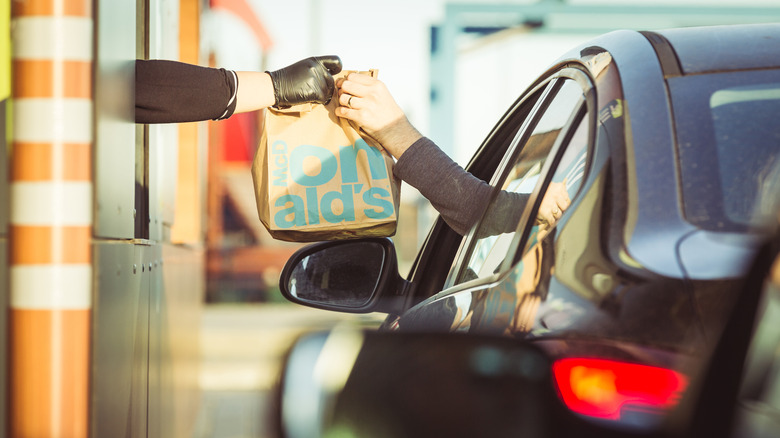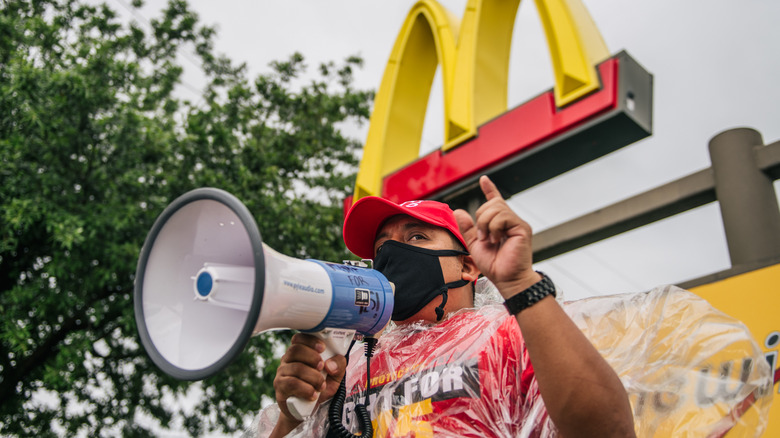Why The McDonald's President Is Against California's Fast Food Law
When the California governor signed the FAST Recovery Act, quick-service restaurant workers thought that higher wages would find their way to their paychecks. As a voter referendum works its way through the California ballot, both sides of the argument are vocalizing the pros and cons of the mandatory increase in the minimum wage. In a recent open letter on the McDonald's corporate website, CEO Joe Erlinger did not mince words regarding his opinion on the proposed legislation.
In August 2022, CNBC had previously shared that Erlinger believed that the FAST Recovery Act unfairly targeted large chains. While the disparity between the proposed law's application can be debated, Erlinger argued that corporate franchisees should be treated the same as non-chain restaurants. His comments were an appeal to put all workers on an even playing field.
As seen in his recent open letter, Erlinger takes his commentary further by arguing the FAST Act will not better serve workers' needs. The McDonald's CEO cites various studies and publications that suggest the implementation of this law could result in "higher restaurant prices and lower business and job growth." Although these statements might appear that Erlinger is against raising wages, he asserts a different approach. He believes that reasonable minimum wage increases can benefit businesses, employees, and communities. Given that the voter referendum will be in 2024, this letter might be the opening barb in a back-and-forth battle that will ultimately be answered at the polling place.
Can fast food workers raise their voices louder in support of FAST Act?
With McDonald's CEO publishing an open letter criticizing the potential enactment of the FAST Recovery Act, fast-food workers, and their supporters, are hoping to have their voices heard, as well. As reported by Insider, some workers were looking to strike to raise awareness regarding the upcoming referendum. While Mary Kay Henry, president of the Service Employees International Union, was quoted in the article asserting that large corporations could use their resources to stop the FAST Act from becoming law, only the California voters will be the ones who will have the final say at the voting booth.
Still, CNN reports that corporations like McDonald's, Chipotle, Starbucks, and others have donated $1 million to Save Local Restaurants, which is opposing the FAST Act. That collective effort is different from the fast-food workers, who have difficulty creating a collective bargaining position. Since some fast-food categories have barriers to unionizing workers, the proposed FAST Act law gives those people a seat at the collective bargaining table. While corporations might have deep pockets, workers could rally people around their position and make their plea to the voters, who will have the final say in 2024. For now, both sides are rallying their troops and presenting their cases to everyone who is cautiously listening.

